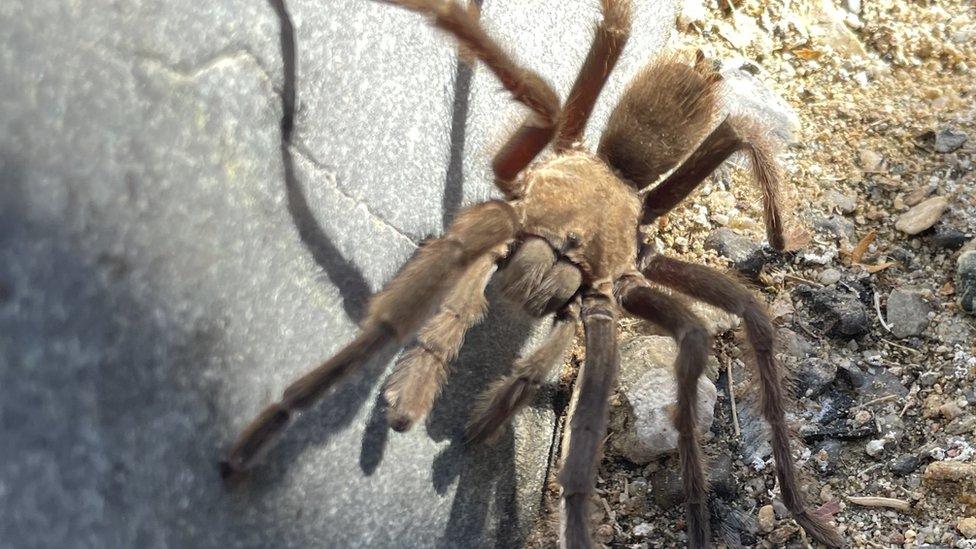Tarantula causes vehicle crash in California's Death Valley
- Published

A tarantula seen by park employees in Death Valley on the day of the accident.
A foreign tourist travelling in California's Death Valley National Park has been injured in an accident caused by an unlikely culprit: a tarantula.
According to the National Park Service, a traveling Swiss couple in a rented camper van hit their brakes to avoid hitting the spider.
The van was in turn rear-ended by a 24-year-old Canadian motorcyclist, who was injured in the incident.
The spider survived the pile-up, escaping into the desert unharmed.
In a statement posted on Facebook, the park said that the incident took place on a state highway east of Towne Pass, a remote and arid section of the park located in California's Inyo County, on 28 October.
The motorcyclist was taken to Desert View Hospital in the nearby town of Pahrump. His condition is unclear.
The “óĻó“«Ć½ has reached out to the hospital and the park service for comment.
Superintendent Mike Reynolds, the first park service employee at the scene of the accident, implored other visitors to the park to drive slowly in the area, particularly when going down steep hills.
"Our roads still have gravel patches due to flood damage, and wildlife of all sizes are out," Mr Reynolds said.
Tarantulas average five inches (13 cm) long, but have leg spans of up to 11 inches (28 cm), according to the National Wildlife Foundation. In the US, they are only found in the Southwest.
While the gargantuan, hairy creatures use venom to immobilise their prey - which can include beetles, other spiders and even small lizards - they are not deadly to humans despite their fearsome reputation.
Their bites are comparable to a bee sting, although the barbed hairs they shoot at attackers can cause irritation to humans.
They are considered slow and non-aggressive and are popular pets among spider lovers.
Tarantulas spend large portions of their lives in underground burrows, and are most often seen in the fall when eight to 10-year old males leave in search of a mate.
ZSL London Zoo is trying to help people combat arachnophobia
Related topics
- Published13 January 2022
- Published30 August 2022
- Published23 March 2023